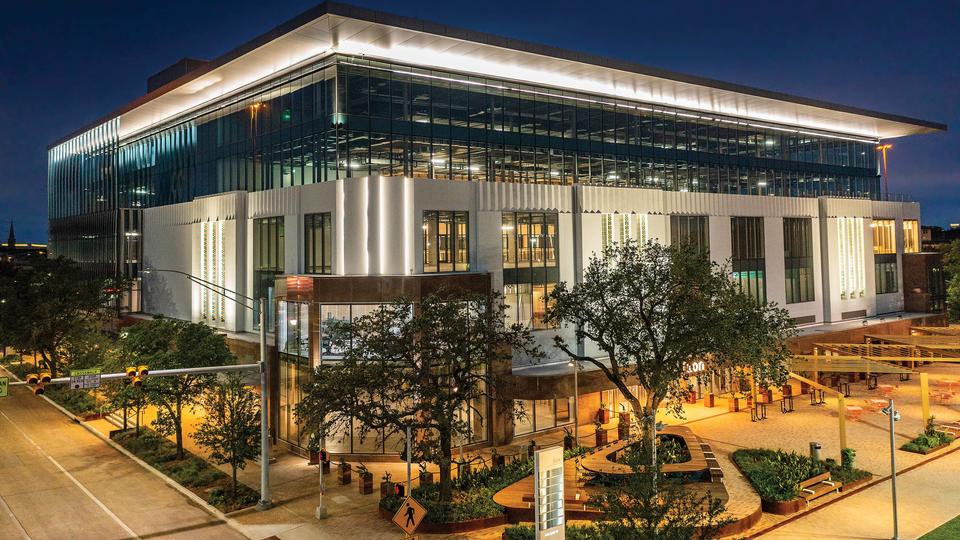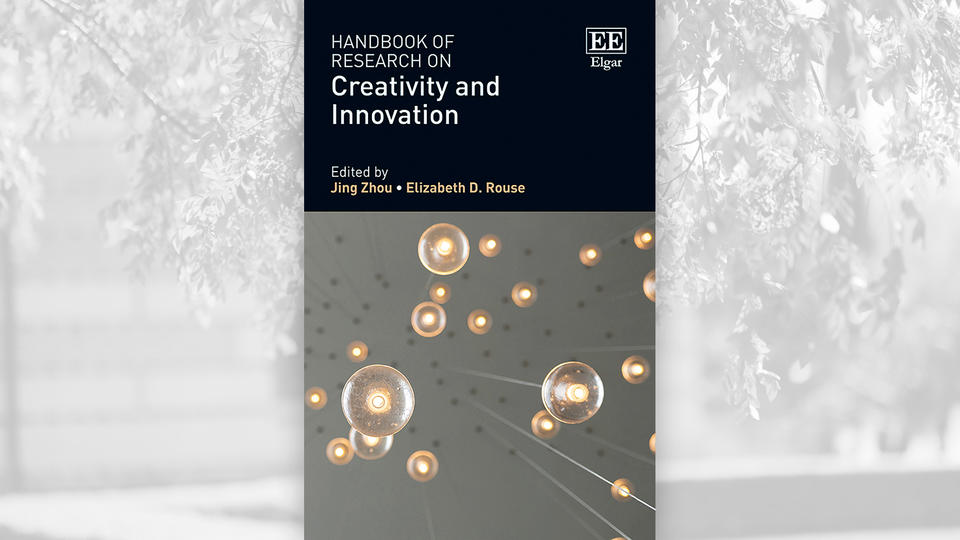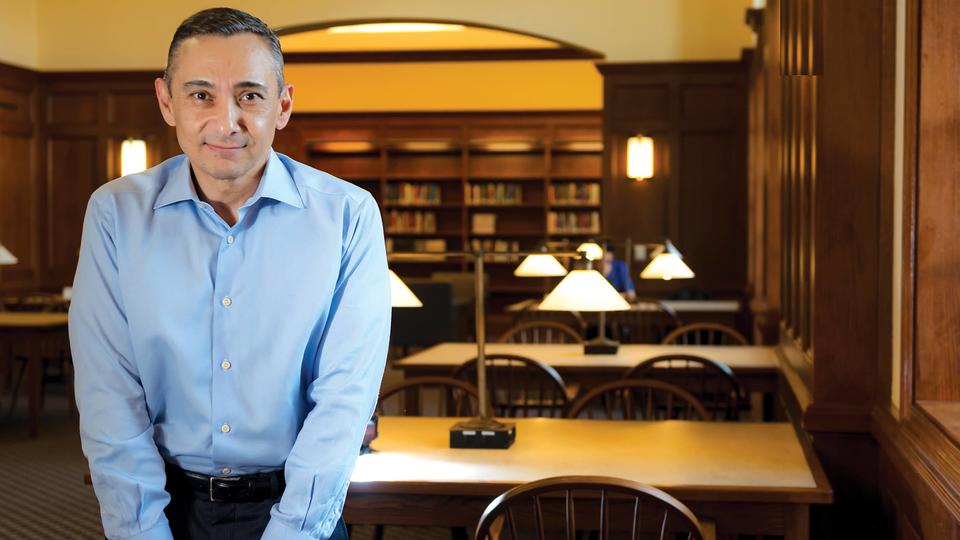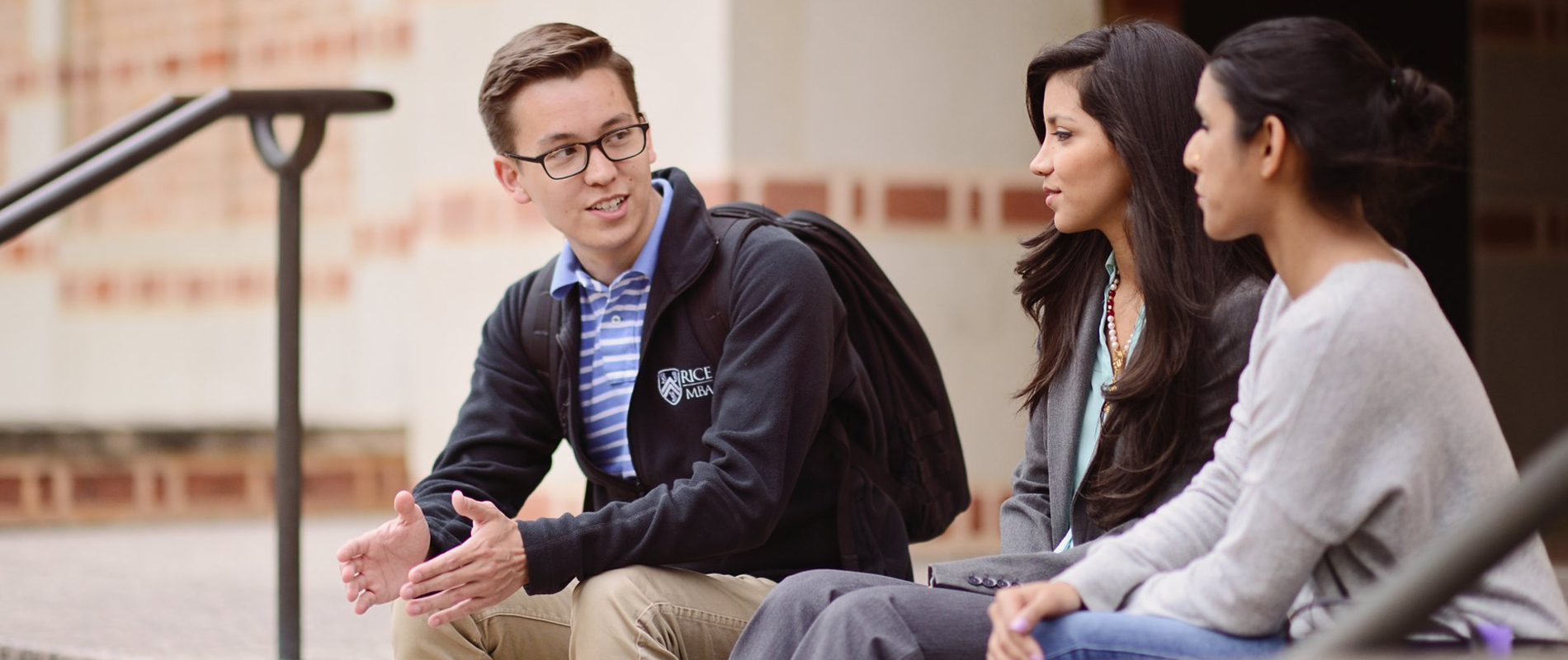
The Newest Normal
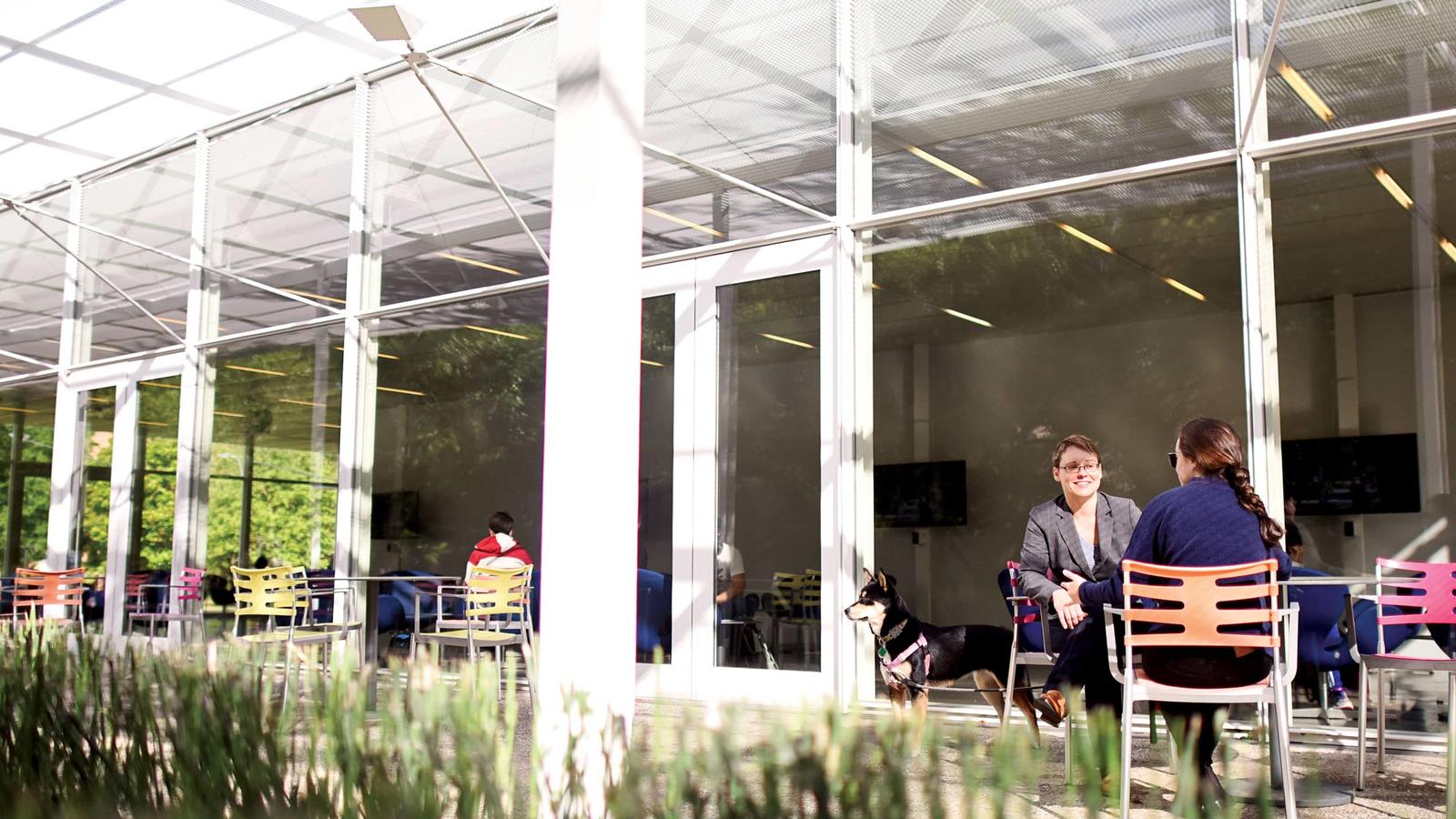
As omicron recedes, Rice shifts its strategy and eases campus restrictions.
The omicron surge hit Houston hard over the winter holidays — just as Rice Business students were preparing to return to campus for the spring semester. Once again, COVID threw us for a loop. But this time around, the loop was shorter. After reverting to remote learning for the first part of January, the spring semester marked a return to in-person classes and events. And by the end of March, wearing a mask was no longer required anywhere on campus, indoors or out.
Across the country, schools have grappled with the fits and starts of the ongoing pandemic, balancing community safety against the benefits of in-person education. Now, many see omicron as a sign that COVID will endure indefinitely in some form — but a much less deadly one. And Rice has shifted its approach from an attempt at containing the virus to one aimed at coexisting with it. The latest pivot to remote learning was meant to give omicron a chance to recede before the school returned to a more normal mode of instruction, with safeguards in place.
“My gauge is that the university is ready, for the most part, to treat COVID more as a management issue and something we will live with, as well as something we try to avoid,” Rice Business Dean Peter Rodriguez said.
“We have become experts at handling last-minute changes, appreciating the small wins and staying optimistic,” Rodriguez added, in an email to the community, when in-person classes resumed Jan. 24. “It hasn’t been easy for our community of students, staff and faculty. Learning, teaching, working, spending time with family and friends — everything we do has been affected in some way. Your constant support and cooperation has made Rice Business shine.”
Because Rice accepts federal contracts, it was required to comply with President Biden’s executive order for all employees to be fully vaccinated by Jan. 4, except for those with a medical or religious exemption. And as of Jan. 10, vaccine boosters were required for all students and Rice employees.
Two years into the COVID-19 pandemic, the university’s strategy has evolved along with the virus. As vaccines became more widely available and treatment options for the most vulnerable improved, the risks from COVID lessened and administrators began easing restrictions on campus, allowing larger gatherings and less isolation.
“We’ve entered a new and different phase of the pandemic, one that requires us to revisit and revise our COVID policies and operational decision-making,” Rice President David Leebron wrote in a Dec. 26 email to the community.
“Most public health experts believe there will not be a clear end to the pandemic as COVID-19 transitions into more of an ongoing endemic condition that is always with us, but generally significantly less life-threatening with available vaccines and treatments.”
“We must also recognize and take into account the toll that our pandemic risk mitigation policies and personal choices have taken on both the broader wellbeing of our community and our ability to execute our mission at a high level, and we must adapt accordingly,” he wrote.
In a Jan. 16 New York Times article, Leebron pointed out that there had not been a serious COVID case within the campus community in months. He said he worried that extending lockdown-style restrictions would lead to even more serious problems. “Across campus, there are mental health issues,” he said. “If we have a disease that, for college-age vaccinated people does not pose a serious risk, those other factors need to be taken into account.”
On Feb. 24, two years after Rice notified the Houston health department of what it believed to be its first COVID case, Associate Dean of Degree Programs George Andrews emailed the Rice Business community, writing, “Think about how far we have come, and how much we have endured.”
“You will begin to see Rice return to ‘normal’ in the coming two months,” Andrews said. “Soon, we will get back the multipurpose rooms and testing facilities will be consolidated. You will be receiving antigen tests from the university for your use as needed, and the mask policy will continue to relax over that time as well.”

Mask rules became gradually less restrictive as the semester progressed. At first, masks were required at all times indoors; then only in classes and for groups of more than 25. By early March, they were required only in classes. After spring break, even that requirement was lifted.
Still, COVID has disrupted the lives of everyone in the Rice Business community and beyond. The losses are incalculable, and the effects will be far reaching. The precautions we’ve taken and the sacrifices we’ve made helped minimize the worst possible outcomes. And while those sacrifices were enormous, in many ways the accommodations made during the pandemic — including flexible schedules and virtual programming options — have led to innovations in the ways we work, study and socialize that could bring about more accessibility and inclusivity in the future.
“Congratulations on making it through the past two years,” Andrews said. “It is hard to believe it was only two years ago [that the pandemic began]. It seems closer to a decade. Here’s to an amazing 2022, your indomitable spirit, and a return to normalcy.”
You can find updated information about COVID on campus here: https://coronavirus.rice.edu/
